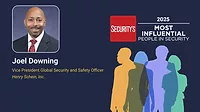Global News & Analysis
Most Americans Choose Convenience Over Password Security

s-cphot0 / iStock / Getty Images Plus / via Getty Images
A recent report by frontegg found that one in three Americans would trade security for convenience, opting for a less secure authentication method if it meant faster, easier logins. Gen Z (38%) leads in prioritizing speed over safety. Forty-six percent of Americans deliberately use weak passwords for easier recall, with Gen Z (57%) being the biggest offenders.
Seventy percent of Americans say that they find password management exhausting. Even so, 40% update their passwords once or twice a year, and 36% rarely or never do.
While 48% trust and use biometrics like fingerprint or facial recognition, invasive options like brain chip implants remain a hard no — 70% of Americans refuse to consider them under any circumstances. Sixty-one percent of Americans do not trust AI more than traditional password managers.
According to the report, hose who considered themselves tech-savvy were significantly more likely to use biometrics (57%) than those who didn’t (38%). Those with lower tech confidence also relied more on passwords than their tech-savvy counterparts, but interestingly, not by much (92% vs. 88%).
Beyond passwords and biometrics, CAPTCHAs have become another major authentication pain point. Nearly half of Americans (49%) have abandoned an online purchase due to forgotten passwords, 46% due to repetitive login processes, and 44% because of frustrating CAPTCHA tests. These behaviors typically occur before users even attempt a password reset, as login friction discourages them from continuing.
CAPTCHAs, designed to keep bots out, are also really testing users’ patience — a whopping 40% of Americans admitted to yelling at their screens because of them. Baby boomers (42%) and Gen X (43%) were more prone to screen-related outbursts, but millennials (39%) and Gen Z (34%) weren’t far behind.
Many Americans (70%) said they feel exhausted by password management, which may be one reason why 40% reset their passwords only once or twice a year and 36% rarely or never do. Nearly half (46%) have deliberately chosen weak passwords for easier recall, with Gen Z leading at 57%. Even more concerning, a quarter of Americans used personal details like their name or birthdate in their passwords — basically handing hackers the keys to their digital lives. Gen Z was the most likely to take this risky shortcut (33%).
These poor password habits have real consequences — about one in three Americans (32%) have had their accounts hacked, leaving them vulnerable to stolen data, financial loss, and digital chaos. Millennials (35%) and Gen Z (32%) have been hit the hardest, proving that convenience often comes at a steep price.
Looking for a reprint of this article?
From high-res PDFs to custom plaques, order your copy today!







